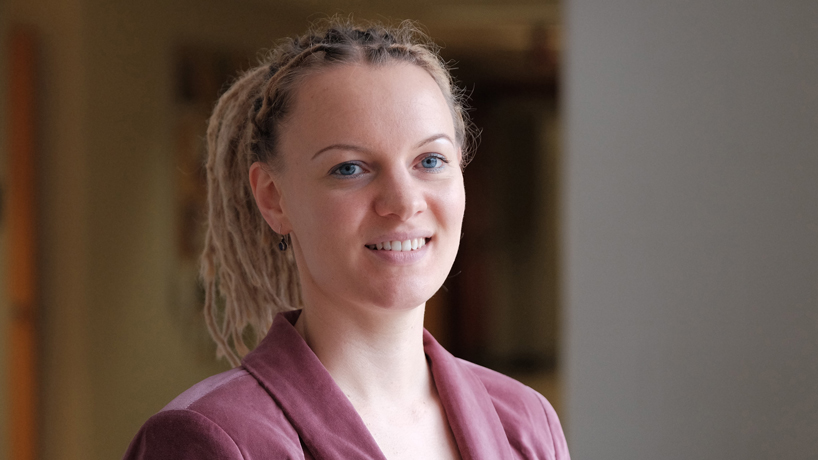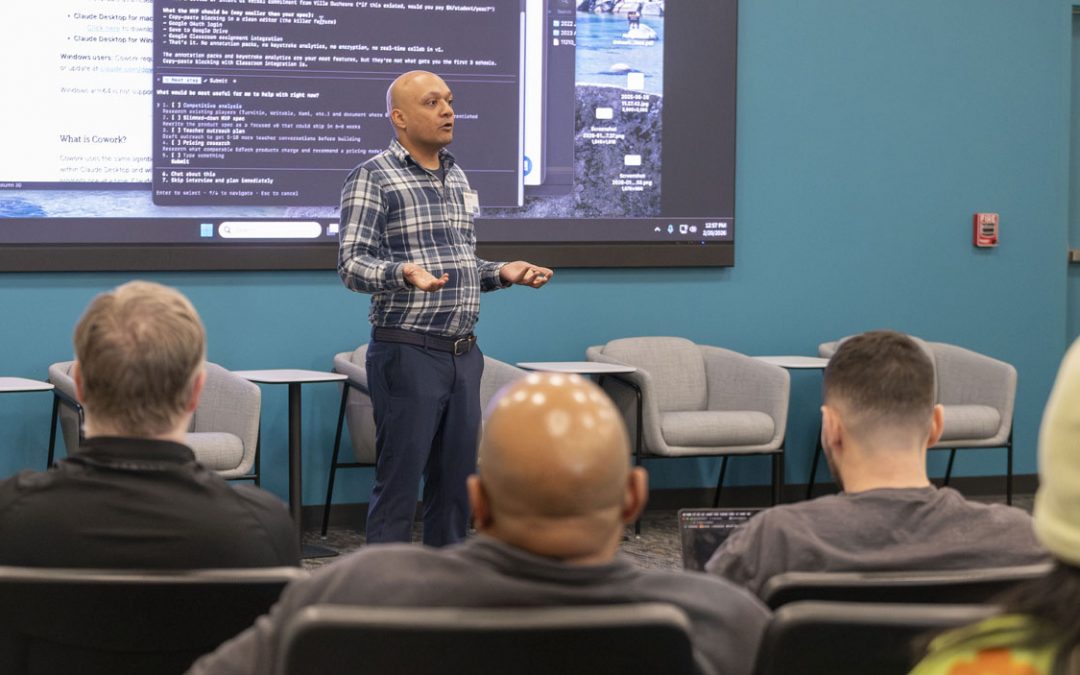
Research into the science of getting over breakups by UMSL Assistant Professor of Psychology Sandra Langeslag was featured on the website of TIME magazine and other online outlets. (Photo by August Jennewein)
If you’ve ever wondered how to move on from an especially brutal breakup, Sandra Langeslag has some suggestions.
Langeslag, assistant professor of psychology and director of the Neurocognition of Emotion and Motivation Lab at the University of Missouri–St. Louis, headed a new study that was published in the May edition of the Journal of Experimental Psychology: General in which she studied different strategies for getting over the end of romantic relationships. The findings from her paper, titled “Down-regulation of love feelings after a romantic break-up: Self-report and electrophysiological data,” have been featured on the TIME website and other outlets.
Langeslag and her research team studied 24 subjects, ages 20 to 37, who had been in a long-term relationship that ended, averaging 2 1/2 years. They had each of the subjects use one of four different coping strategies.
The first strategy was to think negatively about their exes. The second was to think positively. The third was to think about positive things that didn’t pertain to their exes. The fourth group, a control group, was to not think about anything specific.
Then, the researchers showed the subjects pictures of their exes and measured the intensity of emotion registered through electrode readings and a questionnaire. The findings: all three strategies decreased emotional response to the photos relative to the control group, but only when the subjects thought negatively about their exes did they report feeling less love toward them. They also reported being in a worse mood than when they started the study.
The third coping mechanism, a distraction strategy aimed to avoid thinking about their exes, elevated the subjects’ moods but did not affect how they felt about their exes.
All of the test conditions are short-term solutions for a long-term problem.
“Love regulation doesn’t work like an on/off switch,” Langeslag told TIME. “To make a lasting change, you’ll probably have to regulate your love feelings regularly.”
Langeslag co-authored the paper with Michelle Sanchez, BA 2010, MA 2017, a former graduate student in the NEM Lab. Langeslag’s research has made headlines before, notably her work studying whether people can regulate the amount of love they feel for another person by thinking positively or negatively about them.
Media Coverage
TIME
Men’s Health
The Daily Mail
Business Insider
Bustle














